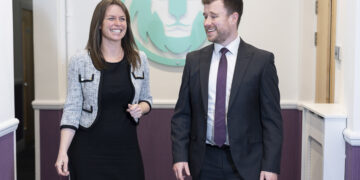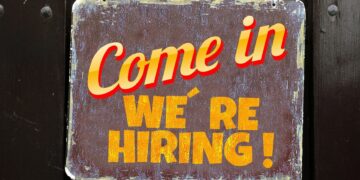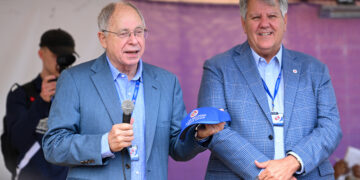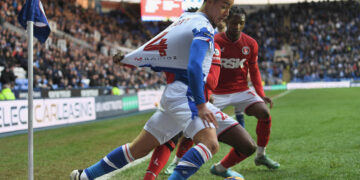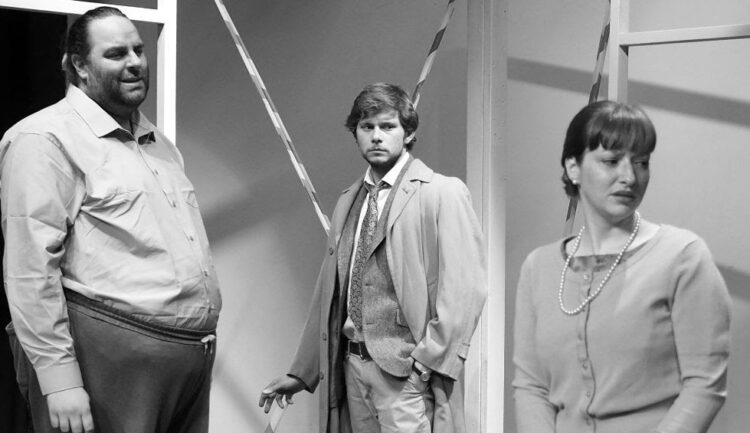WITH ITS latest production, Progress Theatre has continued to examine what it means to be part of the LGBTQ+ community in the post-millennial age.
Following the theatre’s two-part show, Angels in America, The Pride examines two parallel realities.
One of them is set in the late 1950s and follows Philip, Oliver, and Sylvia, while the second follows a version of those characters from 2008.
While the characters are not the same across the time jump, they form a close echo of them under very different circumstances.
The play uses the comparative experiences of the two separate ‘versions’ as a direct contrast between the circumstances of queer people in the 1950s and after the millennium.
In 1958, Philip and Sylvia are living together as partners, with Oliver introduced as a colleague of Sylvia’s.
These characters navigate life in London a full decade before the decriminalisation of homosexuality, and it soon becomes clear that the outward appearance of their marriage is misleading.
Philip and Oliver’s introduction to one another leads to a fling between the two and the spiraling of the group’s relationships as a result.
Ollie, Phil, and Sylvia of the 2000s hold a more casual relationship with one another, with Sylvia acting as a friend between the ex-boyfriends.
Through the parallel experiences, the play looks at the horror of conversion therapy, the dangers of hiding one’s true identity, and the importance of the titular “pride” in all of its possible connotations.
Adam Wells portrays both Oliver and Ollie’s sexual promiscuity and quasi-embrace of his sexuality with a deep, emotional intensity.
His tender moments with Philip feel delicately handled, while the tension of subsequent secrets and strife is fraught with tension.
Wells also has an ear for comedy, with some of the play’s best moments a direct result of his nuanced, considered portrayal.
Faith Mansfield’s Sylvia is similarly captivating as she forms the emotional core of the play.
Sylvia is caught between two men whose love for each other forms a vortex of complication with her in the middle.
Mansfield’s portrayal sells this tug-of-war completely, carrying both the desperate sorrow of a marriage in turmoil and the mid-2000s put-upon friend with equal gravity and aplomb.
Matthew Beswick’s quieter, more reserved portrayal of Philip gives the play space to breathe, which is effective with the eventual turn that one version of the character takes.
The appearances by John Turner also show an incredible versatility, slipping from the character of the sex worker to the conversion therapist with ease.
The character of the sex worker provides some of the funniest parts of the first half, with his comedic portrayal shining through.
Ken Deeks also makes an impressive debut at Progress Theatre, as his portrayal of lad’s mag editor, Peter, steals the show with a confident, accomplished performance.
Progress has to be economical with its staging and The Pride is no different in displaying the care and consideration that the company puts into the set.
This is especially true of the simple, almost skeletal set which provides exactly as much context as necessary, but not so much that it becomes the focus.
This allows the focus of the production to remain firmly on the characters, as it should.
Overall, The Pride is an accomplished production, adding warmth and impact to an important part of queer discourse while continuing to focus on its cultural implications.
The Pride is showing at Progress Theatre, The Mount, from Monday to Saturday, October 10-15.
For more information about accessible and relaxed performances, or to book tickets, visit: www.progresstheatre.co.uk

